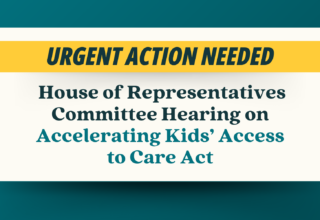The Pediatric Brain Tumor Foundation today announced two new research grants to advance the delivery and impact of targeted drug treatments for pediatric brain cancer. Although targeted therapies hold great promise for treating children and teens with brain tumors, the pace of new drug development is often slowed by a lack of understanding about the most effective way to deliver these therapies and the impact treatments have on the whole child, not just the tumor. PBTF’s latest grants are funding projects at the forefront of eliminating these barriers and providing kids with brain tumors the less toxic treatments they deserve.
“Investing in pediatric brain tumor research has never been more important, especially as COVID-19 has threatened the resources many researchers had access to before the pandemic. The Pediatric Brain Tumor Foundation’s investments across all phases of research and scientific discovery are accelerating the number of life-changing therapies moving from development to clinical trial to commercialization,” says Courtney Davies, PBTF President and CEO.
The two new grants, totaling over half a million dollars for research through the PLGA Fund at PBTF, include a Phase III clinical trial challenging the “gold standard” treatment of the most common forms of pediatric brain cancer and a new research project that will help scientists figure out the optimal drug dosing strategies for kids with cancer.
- COG-ACNS1833 Phase III Clinical Trial Comparing Functional and Quality of Life Outcomes After Selumetinib vs. Carboplatin/Vincristine in Children with Low-Grade GliomaSince the 1970s, chemotherapy has been the “gold standard” treatment option for pediatric brain tumor patients, despite its adverse quality of life impact. COG-ACNS1833, a Phase III clinical trial, is blazing a new trail for kids with brain tumors. Administered by the Children’s Oncology Group (COG), the NCI-supported clinical trials group, this is the largest and first Phase III trial on record that’s targeting the most common forms of pediatric brain cancer.
PBTF will provide $400,000 over two years to help principal investigators, Dr. Peter de Blank at Cincinnati Children’s Hospital and Dr. Heather Conklin at St. Jude Children’s Research Hospital, measure the long-term functional outcomes of chemotherapy versus a MEK inhibitor treatment on patients enrolled in the trial. The funding from the PBTF’S PLGA Fund will be used to assess neurocognitive and behavioral outcomes, visual acuity, coordination, and motor skills.
- Functional Engagement and Effect of RAF-targeted Therapies in GliomaAlthough children metabolize treatments differently than adults, children have historically been treated with a drug dosage based on their adult counterparts. PBTF has partnered with the American Association for Cancer Research (AACR) to improve how drug dosing is determined in phase I clinical trials, exploring what factors impact the safe and effective delivery of targeted therapies to a child’s brain tumor.
Dr. Karisa C. Schreck, an assistant professor of neurology and oncology at the Johns Hopkins University School of Medicine, will receive $180,000 over two years to study the functional engagement and effect of RAF-targeted therapies in glioma. Dr. Schreck and her collaborator, Dr. Jean Mulcahy Levy, will use biospecimens from ongoing clinical trials to determine intra-tumoral drug concentrations, functional ERK inhibition, and correlation with response to treatment of these therapies. The investigators will also identify a kinome signature for treatment sensitivity using pre- and post-treatment specimens and serial blood samples.
“The insights that will result from these research grants are invaluable to improving our understanding of targeted therapies’ impact on kids with brain tumors, as well as how to design smarter clinical trials and novel drugs. We are thrilled to support these highly promising grant recipients as they discover the breakthroughs needed for a cure,” says Amy Weinstein, the PBTF’s National Director of Research Investments and Advocacy.
Since 1991, PBTF has led the way in transforming how childhood brain tumors are treated, providing critical funding and strategic leadership to address key gaps in the research and drug development pipeline. PBTF research investments include support for early career development, core infrastructure projects, basic and translational science, targeted pre-clinical and clinical trials, and educational meetings for professionals across the pediatric neuro-oncology field. Visit www.curethekids.org/research to learn more about PBTF’s research investments.
About the Pediatric Brain Tumor FoundationEvery day, 13 children and teens are diagnosed with a brain tumor, the deadliest childhood cancer. Every day after, they are in a fight for their life. It is a fight the Pediatric Brain Tumor Foundation is here to help families win. As the world’s leading nonprofit dedicated to kids with brain tumors, PBTF is transforming how childhood brain tumors are treated and how children, teens, and their families are cared for. Through partnerships with leading medical institutions, organizations, families, and individuals, we have funded $46 million in scientific discovery and connect thousands of families each year with patient and family education, financial relief, and a thriving community of support. A world without childhood brain tumors is possible when we stand together to effect real, meaningful change. Join us in our mission to Care. Cure. Thrive. at www.curethekids.org.


